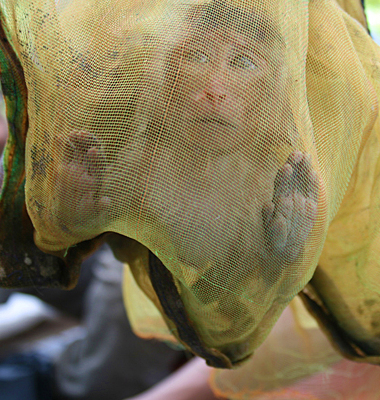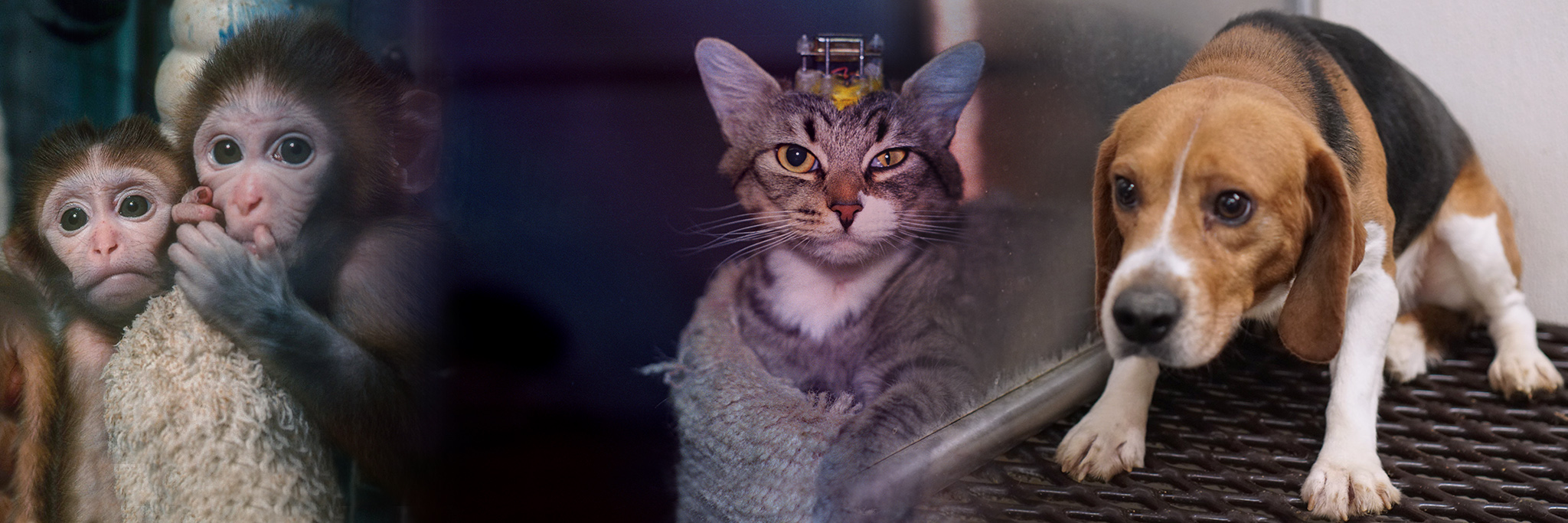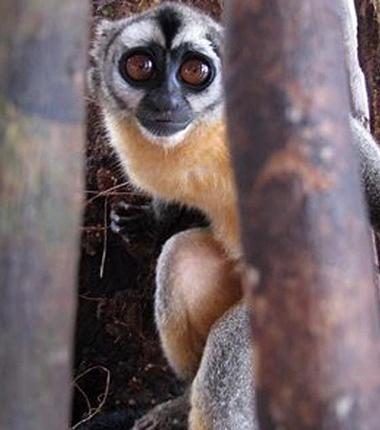
Wild-caught monkeys in Cambodia are stuffed in mesh bags and crammed into boat bottoms. BUAV's Torn From The Wild, trapped wild monkeys in Cambodia destined for factory farms that supply the international research industry.
Colombia's night monkeys are captured for sale to medical researchers.
MCCLATCHY NEWSPAPERS
|
THIS ALERT IS CLOSED. It is archived for a letter- writing example or research. UPDATE: 4,000 Monkeys Gain Salvation When Researcher Loses Trap Permits 7/5/12 - They’re wide-eyed, cute, and annually stolen by the thousands from Colombia’s Amazon jungle. Night monkeys sell for $50 a head to malaria researchers, even though a cure is nowhere in sight. Dr. Manuel Elkin Patarroyo considers the animals (also owl monkeys) prime experimentation models. Uh-oh. The renowned malaria researcher just lost permits to snatch wild owl monkeys for research at his Institute of Immunology Foundation of Colombia (FIDIC), a jungle lab that pays poor Peruvian and Brazilian natives to illegally move monkeys over unguarded borders. Colombia’s Administrative Tribunal of Cundinamarca revoked Patarroyo’s permits to trap up to 4,000 night monkeys until 2015! Thanks to all Kinship Circle participants who pressured authorities to clamp down on cross-border commerce that threatens primates in the Amazon. Primary credit goes to Angela Maldonado ;– a 15-year pioneer in the study of wild monkeys who filed charges against Patarroyo ;– and her organization Fundacion Entropika for exposing FIDIC workers who discard post-experiment animals without rehabilitation or environmental safeguards. Undercover investigators with Animal Defenders International (ADI) obtained videotape of FIDIC captures on the Amazon. Trappers stalk owl monkeys by night. Forest trees are rigged with nets to snare the tiny creatures. Shoved into mesh sacks, they shriek and claw while piled on small boats that take them away from native forests, forever. Footage inside FIDIC shows distressed monkeys isolated in dingy metal cages. The Tribunal ruled to deny permits to Patarroyo because he violated Cambodia’s pledge to CITES (Convention on International Trade in Endangered Species of Wild Flora and Fauna). Patarroyo apparently infringed Colombia’s National Resources Code as far back as 1984. Judge Elizabeth Lozzi Claudia Moreno also denounced the Colombian Ministry of Environment and the Corporation for Sustainable Development of Southern Amazonia (CORPOAMAZONIA) for failure to oversee FIDIC, stating that the oversight agencies had instead facilitated the lab. According to Fundacion Entropika, as reported by International Primate Protection League: "The court’s decision is the first step to stop the illegal trade in night monkeys, as current permits were revoked. However once the defendants submit their appeals, the law case will be transferred to another court where bureaucracy and corruption are high. For this reason, we have to initiate the next legal actions to guarantee that the court’s ruling is implemented." SOURCE OF UPDATE:A legal victory for night monkeys 4,000 wild monkeys saved from laboratory experiments Patarroyo revoke permission to use monkeys in malaria |
Disaster aid for animals + action for all hurt by greed, cruelty, hate.











